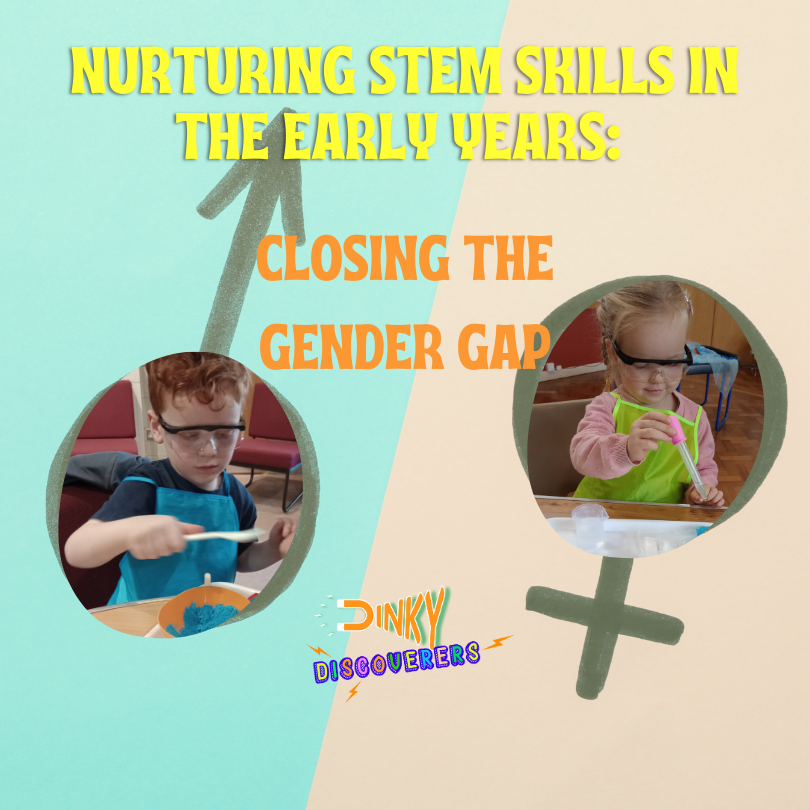Nurturing STEM Skills in the Early Years: Closing the Gender Gap
After International Women and Girls in Science day recently I've been thinking about this a lot

As you know STEM (science, technology, engineering, and mathematics) subjects play a critical role in shaping the future of our society and the economy. Yet, there is a persistent gender gap in STEM fields, with women underrepresented in STEM careers and fewer girls choosing to study STEM subjects*. To address this issue, it is crucial to start promoting STEM education in the early years.
The early years of a child's life are a critical time for brain development and for building a foundation for future learning and success. By exposing children to STEM subjects in their earliest years, we can help to develop their natural curiosity and problem-solving skills, and to foster a lifelong love of learning. This is particularly important for girls, who often face unconscious bias when pursuing STEM subjects and careers, but who have the potential to make significant contributions to these fields.
To support the development of STEM skills in the early years, it is essential to provide children with hands-on, engaging, and stimulating experiences in STEM subjects. This can include activities such as playing with building blocks and toys, exploring the natural world, and engaging in problem-solving activities. It is also important to provide girls with access to female STEM role models and to encourage them to participate in STEM activities and programs.
In addition to providing hands-on experiences, it is also important to promote a positive attitude towards STEM subjects and to dispel any gender-based stereotypes or biases. For example, by showing girls that STEM subjects are for everyone and that anyone can succeed in these fields, regardless of gender, we can help to build their confidence and to inspire them to pursue their interests and ambitions.
By starting early and by providing children with access to high-quality STEM education, we can help to close the gender gap in STEM and to ensure that all students have equal opportunities to pursue careers in these fields.
As early as primary school there is evidence of a gender gap forming in STEM subjects, and this is only caused by societal influence and unconscious bias as there is no inherent difference in the abilities of boy and girls in STEM.
Nurturing STEM skills in the early years is an investment in our children's future, and it is an investment in a brighter, more equitable, and more innovative future for us all.
It's my hope that Dinky can be part of this in your child's early years. And that I can be a postive role model for all children to see that women do STEM too.
* As of 2021, women represented only 28% of the UK's STEM workforce. According to data from the UK Department for Education, in 2020, about 40% of students taking A-level mathematics were girls. In subjects such as physics and computer science, the proportion of girls was even lower, at around 20% and 25%, respectively.










